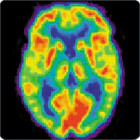
A startling number of children, as young as 12, are forced into prostitution in the U.S. The National Center for Missing and Exploited Children estimates 100,000 – 300,000 children a year are lured or kidnapped, and forced into the sex trade. Many are runaways or homeless kids who are raped, threatened, and moved from city to city for financial gain. The BBC reports police are not acting quickly enough to help these children. One girl in Washington, D.C. says police pointed guns at her, called her a “whore” and bullied her. Advocates for children say these kids need support and police should recognize they are victims.
Of the girls engaged in formal prostitution, about 75% work for a pimp, according to the Department of Justice, which paints this picture of the sex trade:
"Pimp-controlled commercial sexual exploitation of children is linked to escort and massage services, private dancing, drinking and photographic clubs, major sporting and recreational events, conventions, and tourist destinations. About one-fifth of these children become entangled in nationally organized crime networks and are trafficked nationally. They are transported around the United States by a variety of means – cars, buses, vans, trucks or planes, and are often provided counterfeit identification to use in the event of arrest. The average age at which girls first become victims of prostitution is 12-14. It is not only the girls on the streets that are affected -- for boys and transgender youth, the average age of entry into prostitution is 11-13." ______________
photo courtesy: davidsonscott15


